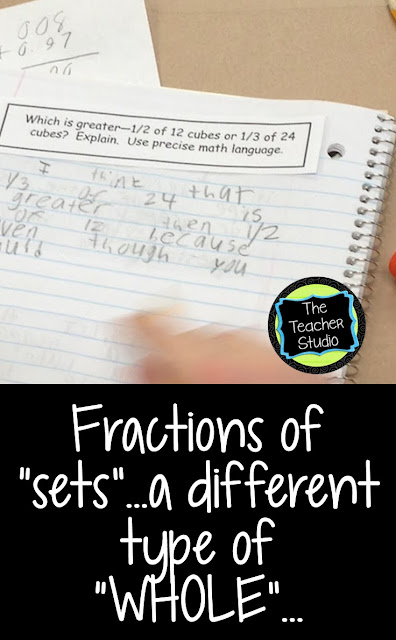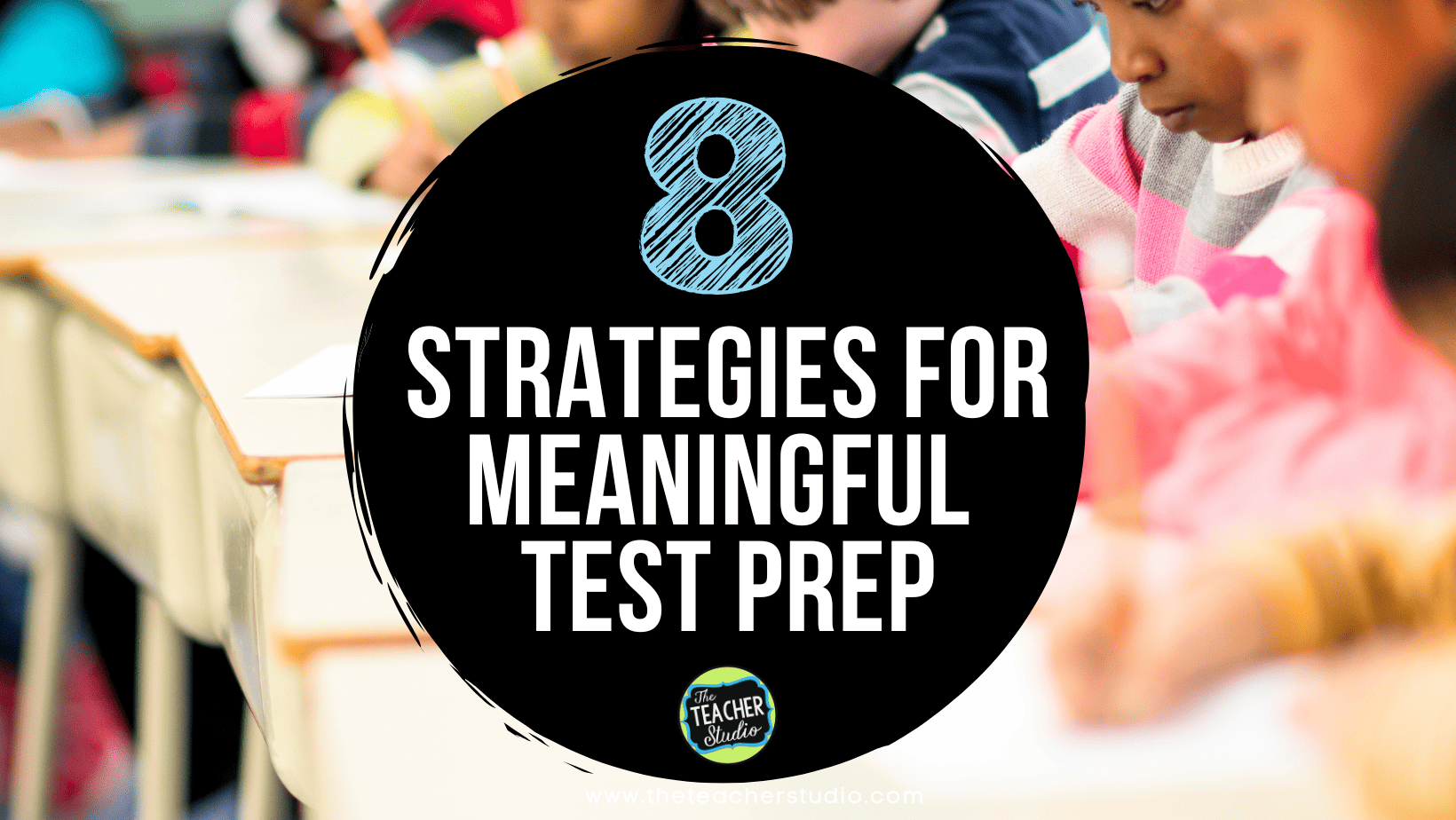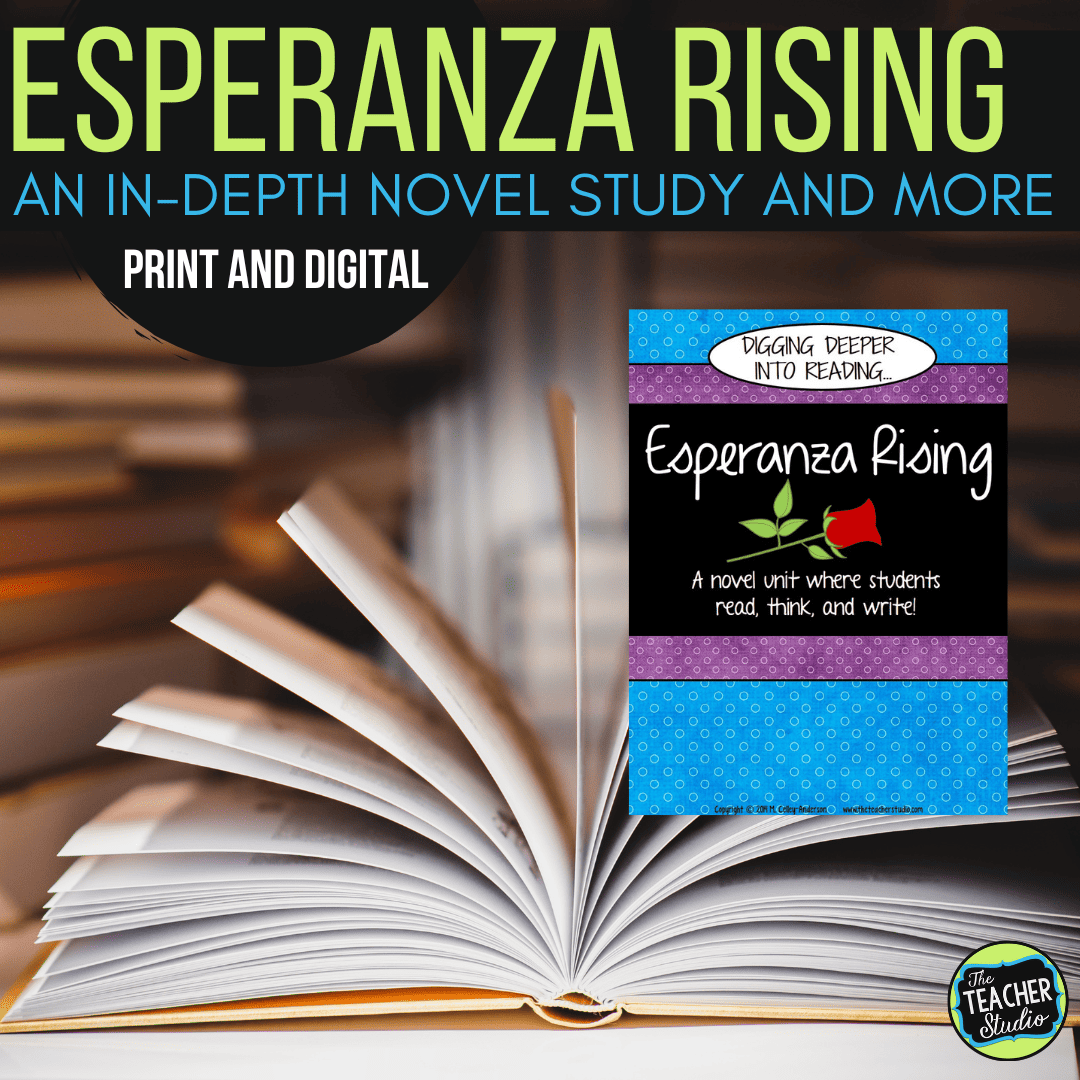I promised another entry in FractionFest 2013 (though a Twitter follower renamed it “Fractionpalooza” which I L-O-V-E!) so here goes . . .
It is super important to remember that fractions come in all shapes and sizes, so I keep bringing my students back to the idea that–like decimals–fractions are numbers that let us talk about pieces of numbers! Next week we will be really digging into number lines, but we spent a few days this week digging into fractions of sets. We started with this question:
Which is bigger–1/2 of 12 cubes or 1/3 of 18 cubes?
I had the students glue the prompt into their notebooks and to decide on an answer and try to “prove it” with words, pictures, or by modeling.
I walked around to snoop, and I was a little surprised at what I saw. About 1/2 my kids (1/2 of 22 for those who are really in the fraction zone) got it instantly in their heads. The other 1/2 didn’t even seem to know where to start. I asked the students to self-select groups–if they wanted help, they should join me up front in the room and if they were confident, I asked them to pair up and to try to write this type of problem for each other.
When I had my group, I poured out the cubes in a pile and we spent some time modeling this problem and talking through it. We reviewed key concepts and terms from the past few days and then worked for a while “telling stories” along this same line. “Which would be more–1/2 of 16 M&M’s or 1/4 of 20?” and so on. Gradually, through modeling, more and more students left the group to go work with a partner to try more.
After a while, it was time to move on–it was Friday after all–so I decided to treat them to some edible manipulatives!
| Math is always better when it is filled with artificial colors and flavors, right? |
| As the problems got trickier, a few students needed to pull out cubes or other counters to model. |
We are definitely in a better place with our fractional understanding–but a few students are still really struggling with the idea that if 1/4 of 20 is 5, 3/4 of 20 is 15 so next week we will do some more work with that. I did introduce a “drawing model” to some students–next week I will expand on that. I do think we are clear that a “whole” can be a “thing”–like a pizza, a pan of brownies, or a piece of paper but that a “whole” can also be a “whole bunch” or a set.
I did include the Skittles fraction sheet if you are interested. . .
***UPDATE***
This blog post is now a part of my comprehensive fraction unit available by clicking the image below. Hundreds of teachers have now used it to change the way they teach fractions!









